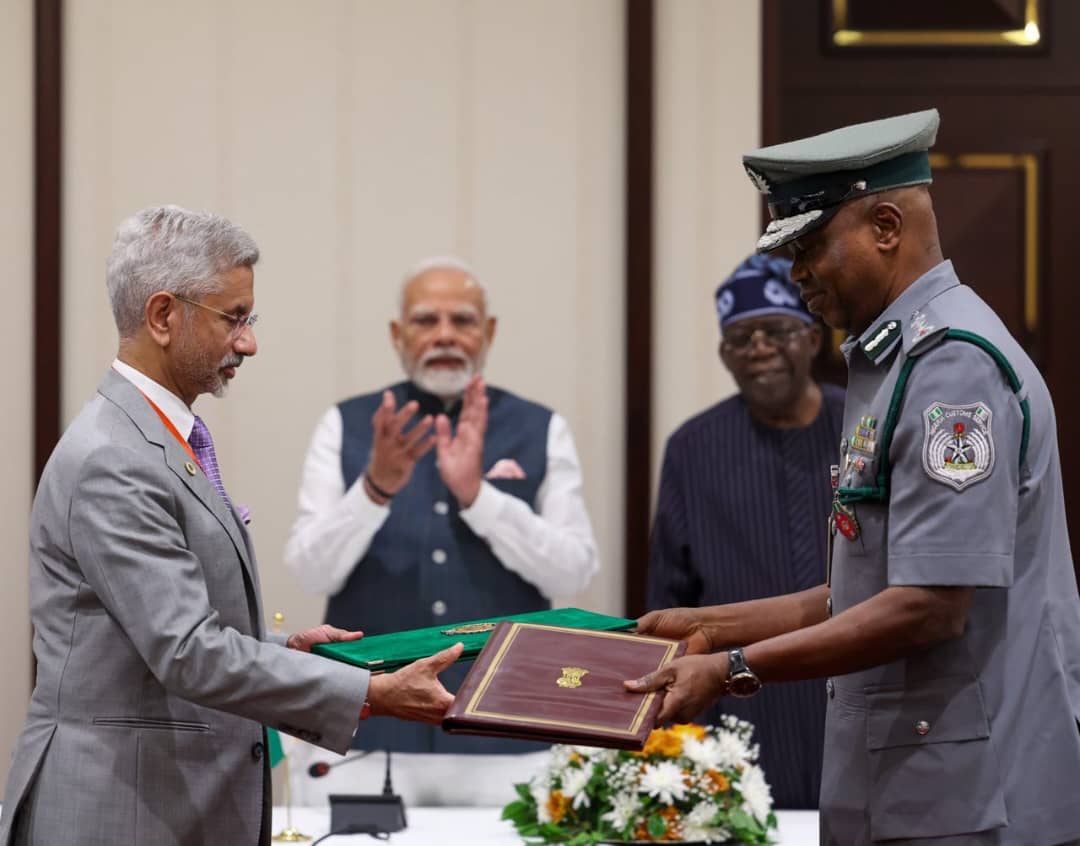Nigeria Customs Signs Mutual Administrative Agreement with India to Boost Trade

The Nigeria Customs Service (NCS) has signed a Customs Mutual Administrative Agreement (CMAA) with its Indian counterpart to enhance bilateral relations and facilitate trade.
The landmark event took place at the Ministry of Foreign Affairs in Abuja and was attended by key dignitaries, including the Comptroller-General of Customs (CGC), Adewale Adeniyi, who represented the NCS.
The agreement is part of activities marking the Indian Prime Minister’s state visit to Nigeria, which commenced on 17 November 2024 at the State House, Abuja.
CGC Adeniyi hailed the CMAA as a pivotal development, noting that it was the culmination of negotiations that began in 2016.
Speaking during the signing ceremony, CGC Adeniyi stated:
“The agreement is expected to enhance collaboration between customs administrations, streamline border clearance processes, and curb customs-related offences.
“By facilitating the swift clearance of goods and reducing trade costs, the CMAA is set to bolster cross-border trade development and improve the enforcement of customs laws.”
The CMAA introduces robust mechanisms to strengthen customs enforcement and promote efficient trade practices. Its highlights include:
Enforcement of Customs Laws: Measures to ensure accurate imposition of duties and taxes, along with proper classification, valuation, and origin determination of goods.
Prevention and Investigation: Enhanced frameworks to combat customs-related offences through improved verification and investigative mechanisms.
Information Exchange: Establishing secure channels for communication and mutual assistance, including providing expert witnesses when required.
The CMAA reflects Nigeria’s commitment to fostering international trade partnerships while upholding the integrity of its customs operations.
By collaborating with India, one of the world’s largest economies, Nigeria aims to unlock new economic opportunities, reduce trade barriers, and deepen its global trade integration.
The agreement is expected to deliver substantial benefits to both countries by reducing trade costs, improving the efficiency of border clearance processes, and ensuring the enforcement of customs regulations.
It also highlights Nigeria’s focus on creating an enabling environment for international commerce.
The partnership is anticipated to play a key role in strengthening the bilateral ties between Nigeria and India, with far-reaching impacts on economic growth, customs modernisation, and global trade competitiveness.







